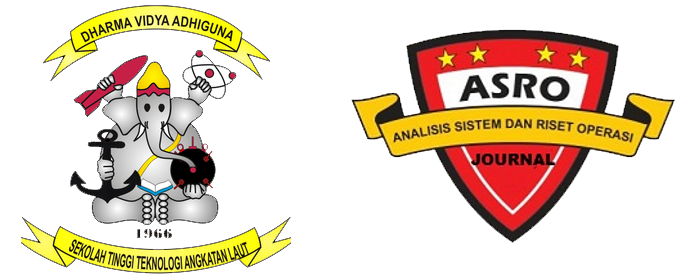SELECTION OF SURFACE TO SURFACE RUDAL KRI-KERAMBIT CLASS USING DEMATEL AND ANALYTIC NETWORK PROCESS METHODS
DOI:
https://doi.org/10.37875/asro.v11i1.213Keywords:
Missile Selection, DEMATEL, Analytic Network ProcessAbstract
Indonesian Warship (KRI) is one of the Main System Weapons (defense equipment) owned by the Navy. In its
2017 procurement, the Navy made a second generation Fast Ship Missile (KCR) made by PT PAL that
produced more than the previous generation, both in terms of capacity and rich ships, named KRI Kerambit
Class. To support the battle, this KRI Kerambit Class will be equipped with a surface to surface missile (SSM) to
improve the ability to use maximum battleships. To be able to activate its function properly, it is necessary to
choose the right missile base weapon. The selection of alternative missile weapons over water requires analysis
of information and collects important requirements about data from alternative weapons over the air. In addition
to alternatives, it is expected that major criteria will be considered in the selection of the Weapons over the air.
In making the decision to procure Weapons Over Water, where the conflict cannot be arranged in the form of a
hierarchy because it requires interaction and higher level elements to lower level elements. Therefore in this
study the Trial Making and Evaluation Laboratory (DEMATEL) and Analytic Network Process (ANP) methods
have the ability to accommodate the interrelations between criteria or alternatives. Based on data processing,
the Exocet MM 40 Block 3 has been selected. This missile has several advantages compared to other missiles,
including launching at counters and missfire that is very low and has very good durability.
Keywords: Missile Selection, DEMATEL, Analytic Network Process



